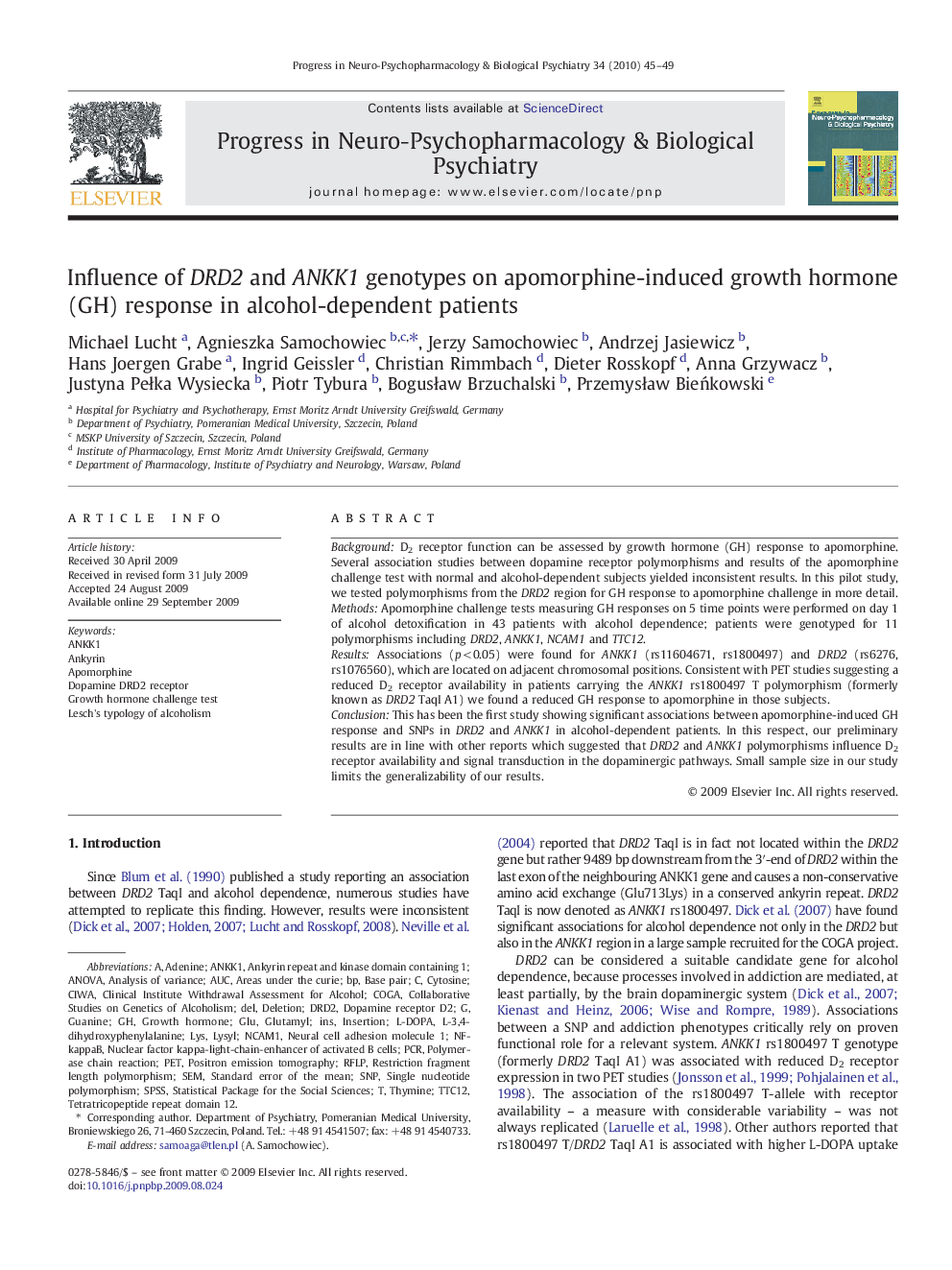| Article ID | Journal | Published Year | Pages | File Type |
|---|---|---|---|---|
| 2565166 | Progress in Neuro-Psychopharmacology and Biological Psychiatry | 2010 | 5 Pages |
BackgroundD2 receptor function can be assessed by growth hormone (GH) response to apomorphine. Several association studies between dopamine receptor polymorphisms and results of the apomorphine challenge test with normal and alcohol-dependent subjects yielded inconsistent results. In this pilot study, we tested polymorphisms from the DRD2 region for GH response to apomorphine challenge in more detail.MethodsApomorphine challenge tests measuring GH responses on 5 time points were performed on day 1 of alcohol detoxification in 43 patients with alcohol dependence; patients were genotyped for 11 polymorphisms including DRD2, ANKK1, NCAM1 and TTC12.ResultsAssociations (p < 0.05) were found for ANKK1 (rs11604671, rs1800497) and DRD2 (rs6276, rs1076560), which are located on adjacent chromosomal positions. Consistent with PET studies suggesting a reduced D2 receptor availability in patients carrying the ANKK1 rs1800497 T polymorphism (formerly known as DRD2 TaqI A1) we found a reduced GH response to apomorphine in those subjects.ConclusionThis has been the first study showing significant associations between apomorphine-induced GH response and SNPs in DRD2 and ANKK1 in alcohol-dependent patients. In this respect, our preliminary results are in line with other reports which suggested that DRD2 and ANKK1 polymorphisms influence D2 receptor availability and signal transduction in the dopaminergic pathways. Small sample size in our study limits the generalizability of our results.
